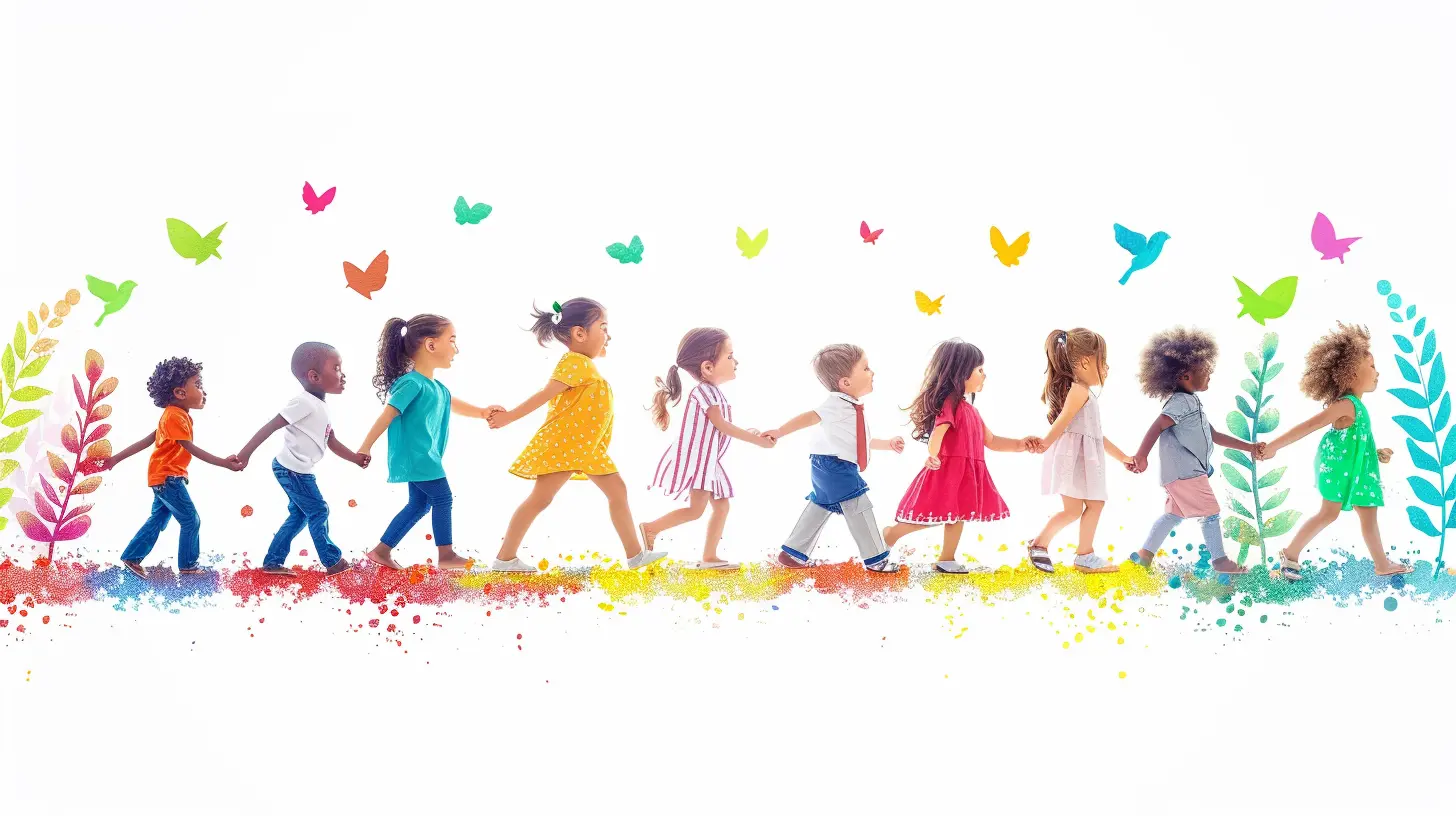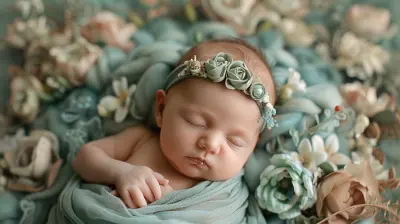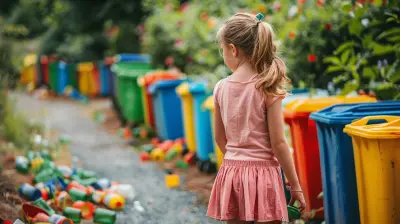How Positive Social Connections Benefit Kids’ Mental Health
23 September 2025
When we think about what makes kids happy and emotionally healthy, we often picture things like nutritious food, enough sleep, or good grades. And yes, those matter — a lot. But there's another powerful ingredient in the mental health recipe that often flies under the radar: positive social connections.
We’re talking about friendships, close family relationships, supportive teachers, and even warm neighbors. These are the social bonds that not only help children feel loved and accepted but also shape how they see the world and themselves.
So, why are these connections such a big deal? Let’s dig into how human interaction becomes the emotional armor kids need to thrive, grow, and bounce back from life’s challenges.
Strong Relationships Are Like Emotional Vitamins
Think of social connections as emotional vitamins for kids. Just like their bodies need nutrients to grow, their hearts and minds need supportive people around them to develop properly.When your child laughs with a friend, confides in a parent, or leans on a teacher, they’re doing more than just being social — they’re building emotional resilience. Strong relationships can:
- Boost self-esteem
- Reduce anxiety and depression
- Encourage healthy coping habits
- Improve communication skills
- Increase empathy and compassion
Social interactions actually teach kids how to manage their emotions, solve problems, and relate to others — all key ingredients for good mental health.
The Science Behind It: Brain Chemistry Doesn’t Lie
Ever heard of oxytocin? It’s often called the “love hormone” — and for good reason. When kids interact with people in a warm, positive way, their brains release oxytocin, which promotes bonding and reduces stress.Not just oxytocin — serotonin and dopamine also come into play during social bonding. These feel-good chemicals literally make kids happier and more relaxed.
On the flip side, lack of social connection can lead to increased cortisol levels (that’s the stress hormone), which over time can harm the brain and the body. So yes, science backs up what many of us already intuitively know: Kind, positive relationships are like a mental health superpower.
How Friendships Shape Emotional Intelligence
Friendships aren’t just about sharing toys or playing tag at recess. They’re a training ground for emotional intelligence. Why does that matter? Because emotional intelligence — the ability to understand and manage your emotions — is linked to better mental health, better relationships, and even academic success.When kids have friends they can trust and talk to, they’re more likely to express feelings, practice empathy, and learn how to compromise. These experiences teach them:
- How to recognize and name emotions
- How to read social cues
- How to resolve conflicts peacefully
- How to support others — and seek support themselves
Think of it like a mini emotional boot camp. And the earlier they start, the better they get at it.
Family First: The Role of Connected Parenting
You’re your child’s first social connection. The bond between you and your child sets the stage for every other relationship they’ll ever have. No pressure, right?But seriously, connected parenting — that warm, responsive, consistent style of interacting with your child — has been linked to all sorts of positive outcomes. It helps kids feel secure and valued, and that security becomes their inner compass for navigating the outside world.
Simple things make a huge difference:
- Listening without interrupting
- Validating their feelings ("That sounds tough!")
- Spending one-on-one time daily
- Encouraging open conversations
These small, everyday actions build a foundation of trust and emotional safety. When kids feel safe, they’re more likely to take healthy risks, express their needs, and bounce back from tough moments.
Teachers, Coaches, and Mentors: The Circle of Support
You know the old saying, “It takes a village to raise a child”? It’s more than just a feel-good quote — it’s backed by research.Non-parental adults like teachers, coaches, neighbors, and mentors play a huge role in kids’ mental well-being. Why? Because they offer an extra layer of support and affirmation.
Having adults outside the family who genuinely care and believe in them gives kids:
- A sense of belonging outside the home
- Confidence to try new things
- A safety net during rough patches
- Diverse perspectives on life and relationships
These connections also provide role models for healthy adult relationships, which is crucial as kids start forming their own understanding of the world.
Group Activities: Where Connection Meets Play
Kids don’t need deep heart-to-hearts every day to build positive connections. Sometimes, just being part of something bigger — like a team, club, dance class, or hobby group — can do the trick.Group activities offer:
- Shared goals and teamwork
- Social learning through observation and imitation
- A sense of identity and purpose
- Opportunities to both lead and follow
Whether it’s scoring a goal in soccer or performing in a school play, being part of a group teaches cooperation, patience, and how to win (or lose) gracefully. And more importantly, it reminds kids they’re not alone.
Warning Signs: When Social Disconnection Affects Mental Health
Now, let’s flip the coin for a second.What happens when a child lacks positive social connections? The results can be heartbreaking. Social isolation or negative relationships (like bullying or toxic peer pressure) can lead to poor mental health outcomes, including:
- Loneliness
- Low self-esteem
- Anxiety and depression
- Academic struggles
- Aggressive behavior
It’s not just about the quantity of social interactions, but the quality. One genuine, uplifting friendship is way more powerful than a thousand likes on social media.
If your child seems withdrawn, irritable, or excessively anxious, don’t ignore it. It might be a signal that they’re not feeling socially connected — and that’s something we can help change.
Helping Your Child Build Positive Connections
You don’t need to be an expert in child psychology to help your kid form better relationships. You just need to be intentional.Here are a few simple, actionable tips:
1. Model Positive Relationships
Let them see you resolving conflicts respectfully, expressing love openly, and treating others kindly. Kids are natural copycats — what they see you do, they’ll emulate.2. Create Social Opportunities
Arrange playdates, enroll them in community events, or just hang out more at the local park. You never know when a new best friend is waiting on the swings.3. Teach Empathy
Talk about emotions openly. Ask questions like, “How do you think she felt when that happened?” These conversations build emotional vocabulary and deepen understanding.4. Encourage Deep Conversations
Ask open-ended questions like, “What was the best part of your day?” or “Did anything make you feel left out today?” These questions show that their experiences matter — and you’re all ears.5. Address Negative Relationships
Teach them how to identify red flags in friendships and how to assert themselves in a kind but firm way. Knowing how to set boundaries is just as important as knowing how to make friends.The Long-Term Payoff
Here’s the beautiful part: When you help your child build strong social connections early on, you’re not just improving their current mental health — you’re setting them up for a lifetime of emotional well-being.Kids who grow up feeling loved, accepted, and connected are more likely to:
- Trust others and form lasting relationships
- Succeed academically and socially
- Cope with stress and adversity in healthy ways
- Develop strong self-worth
It’s like giving them a sturdy sailboat to navigate life’s sometimes stormy seas — with friends and family as the wind in their sails.
Final Thoughts
At the heart of it all, positive social connections remind kids of one simple, powerful truth: They matter.They matter to you. To their friends. To their teachers. To their world.
And when kids know they matter, everything changes. Their smile gets a little brighter. Their shoulders sit a bit taller. That’s the magic of connection — and it’s something every child deserves.
So, whether it’s a hug before school, cheering on their soccer game, or just listening — really listening — you’re doing more than just parenting. You’re nurturing a mentally strong, socially connected, emotionally resilient human being.
And that? That’s the good stuff.
all images in this post were generated using AI tools
Category:
Mental HealthAuthor:

Maya Underwood
Discussion
rate this article
1 comments
Celeste McLain
Who knew that playdates were actually therapy sessions in disguise? Forget the therapist; just add snacks and let the kids boost each other's mental health while we sip coffee!
October 9, 2025 at 4:47 AM

Maya Underwood
Absolutely! Playdates can be powerful for kids' mental health, providing essential social support and connection—plus, snacks make everything better!


